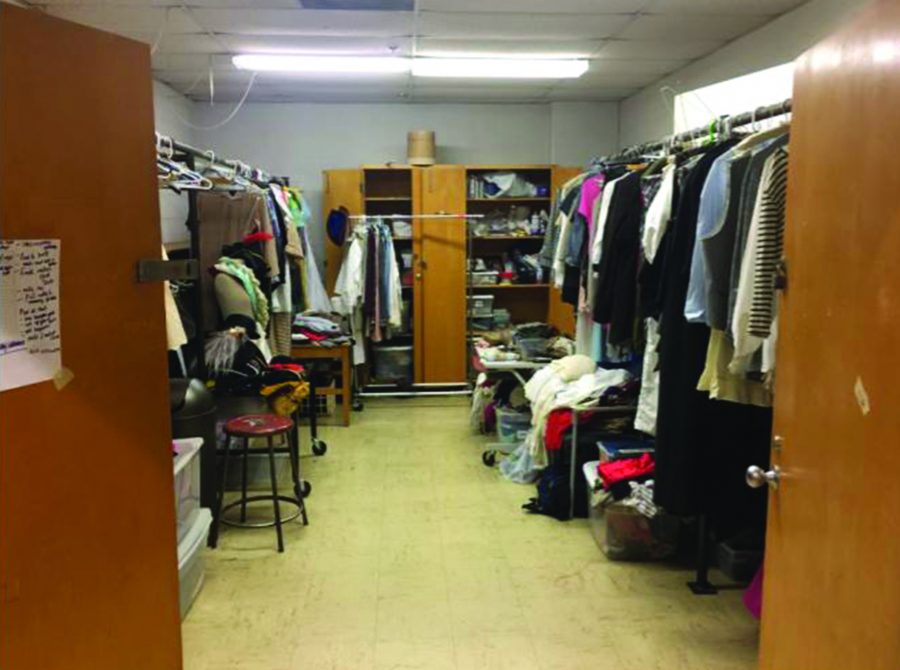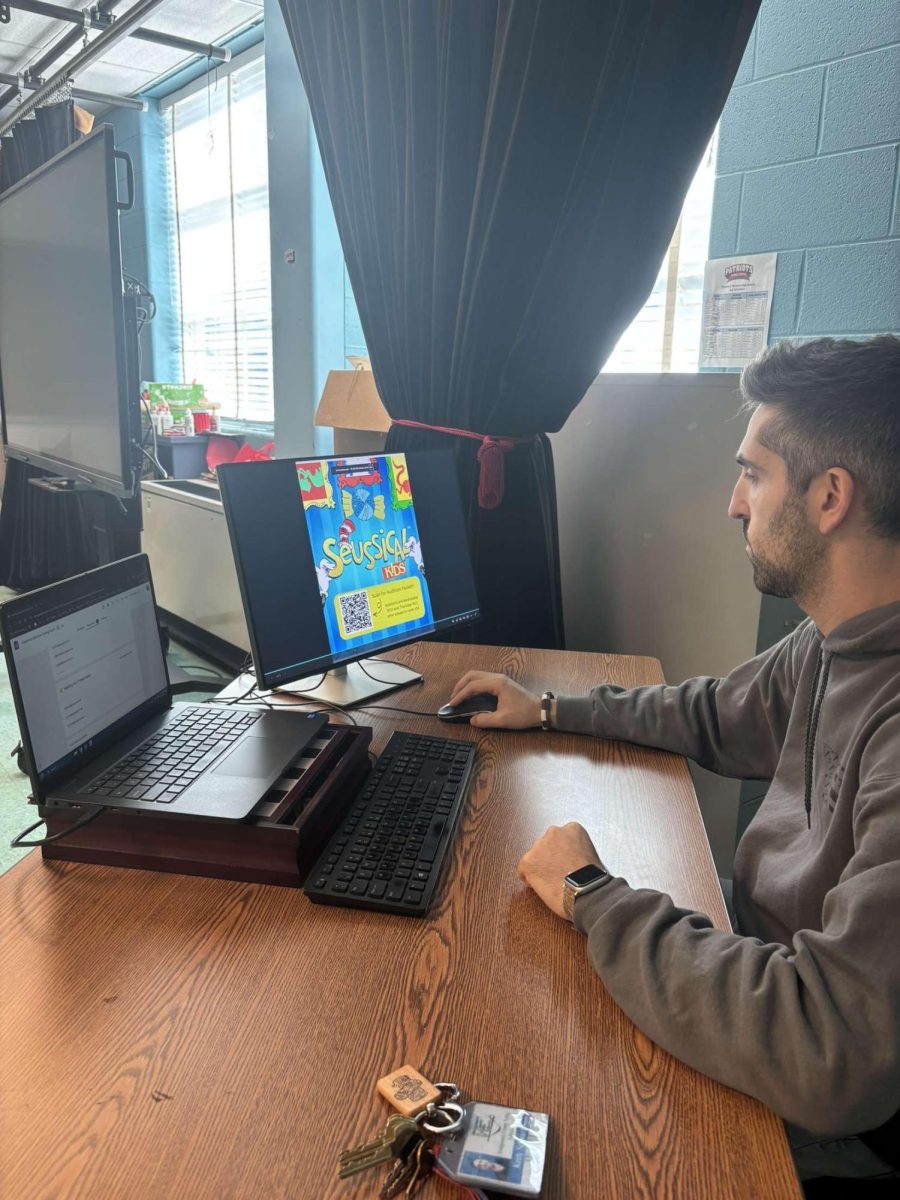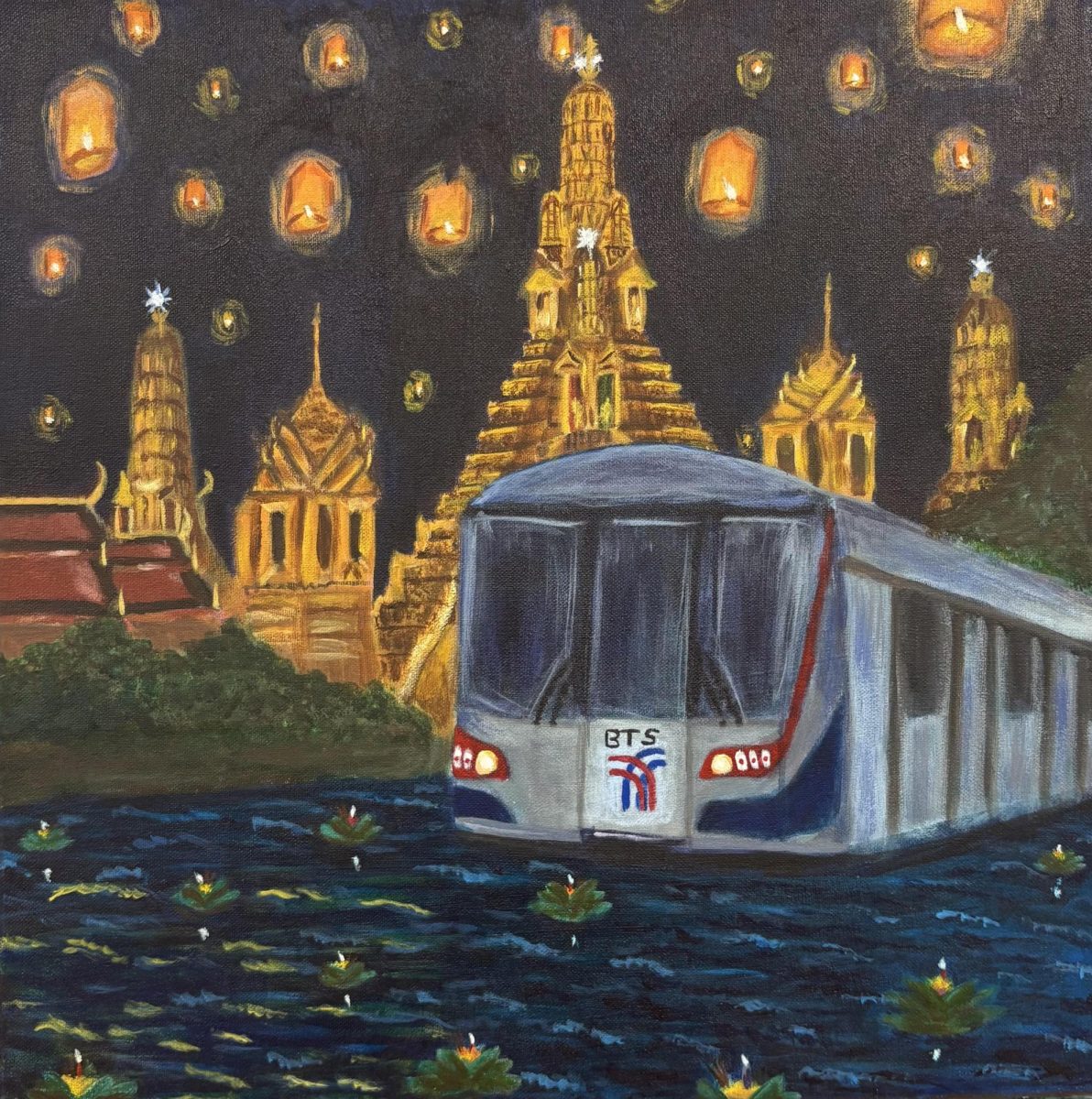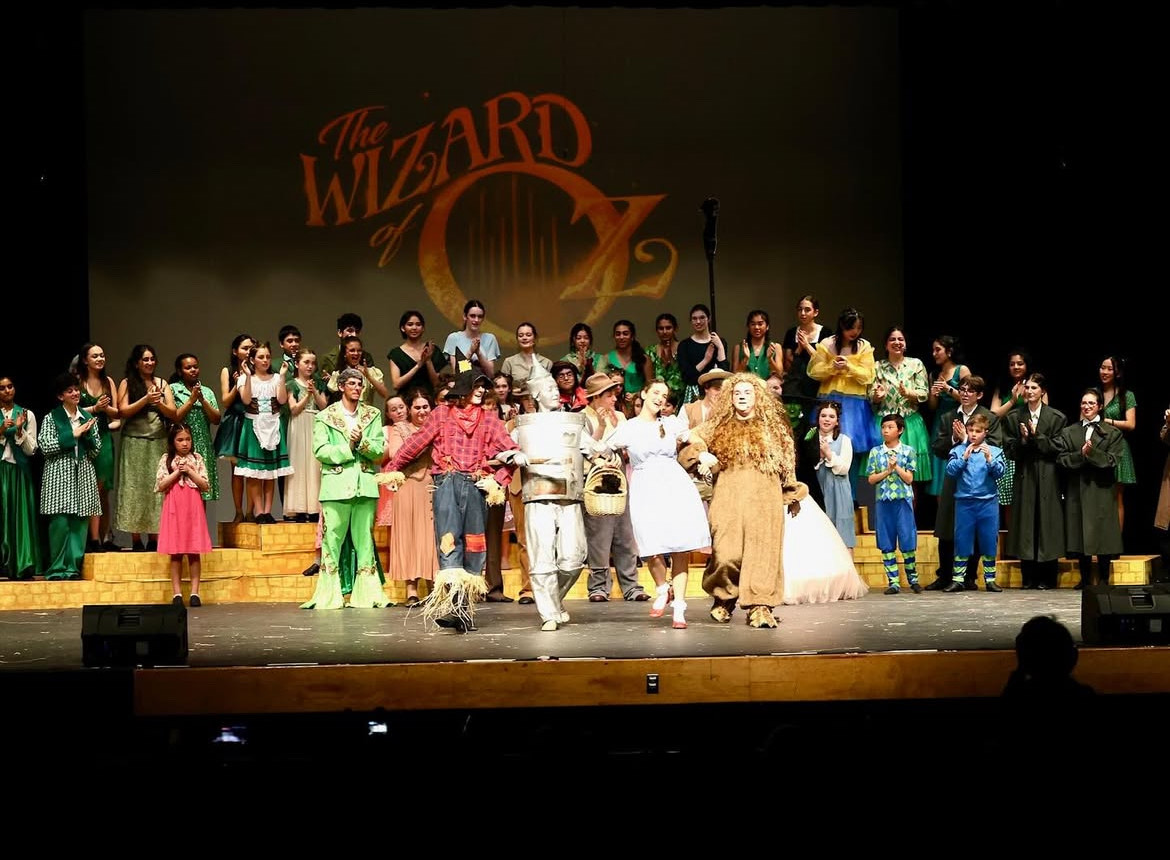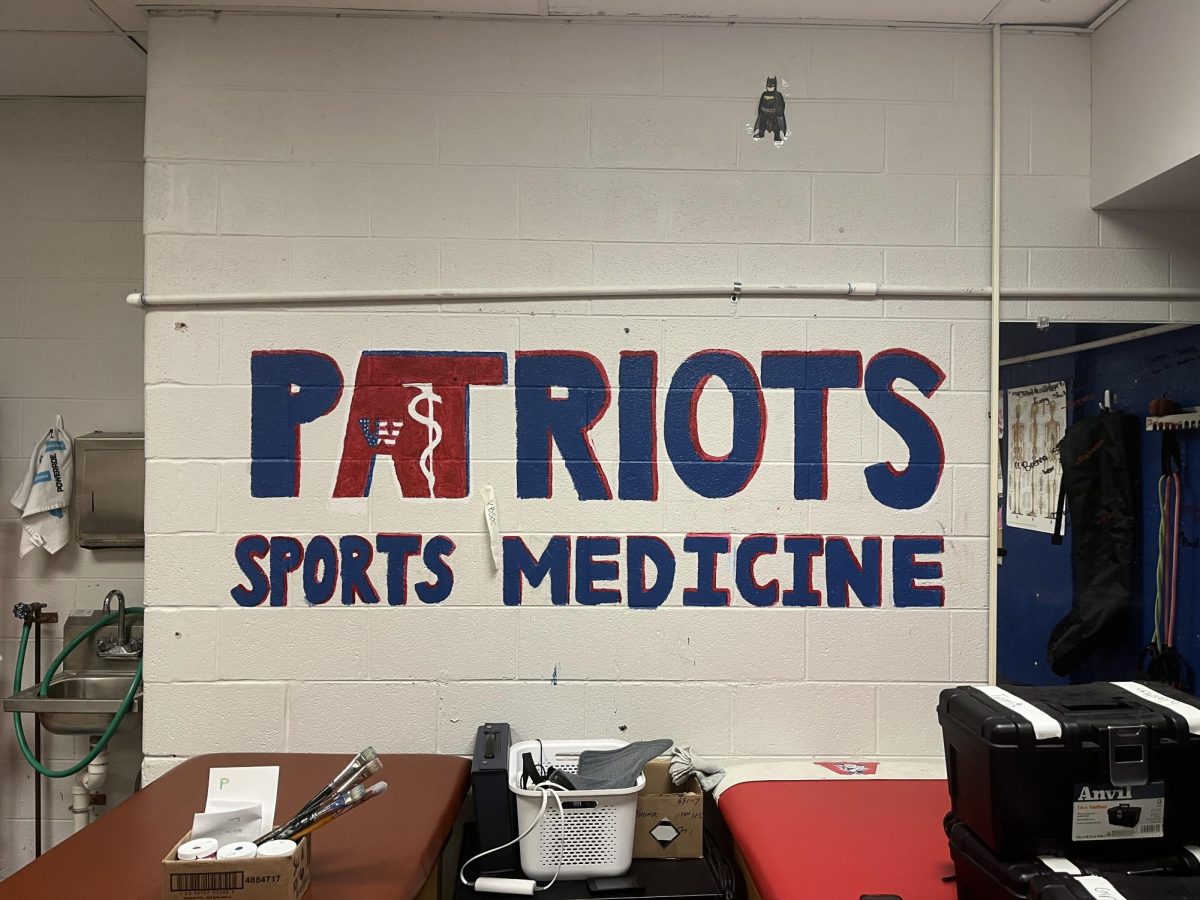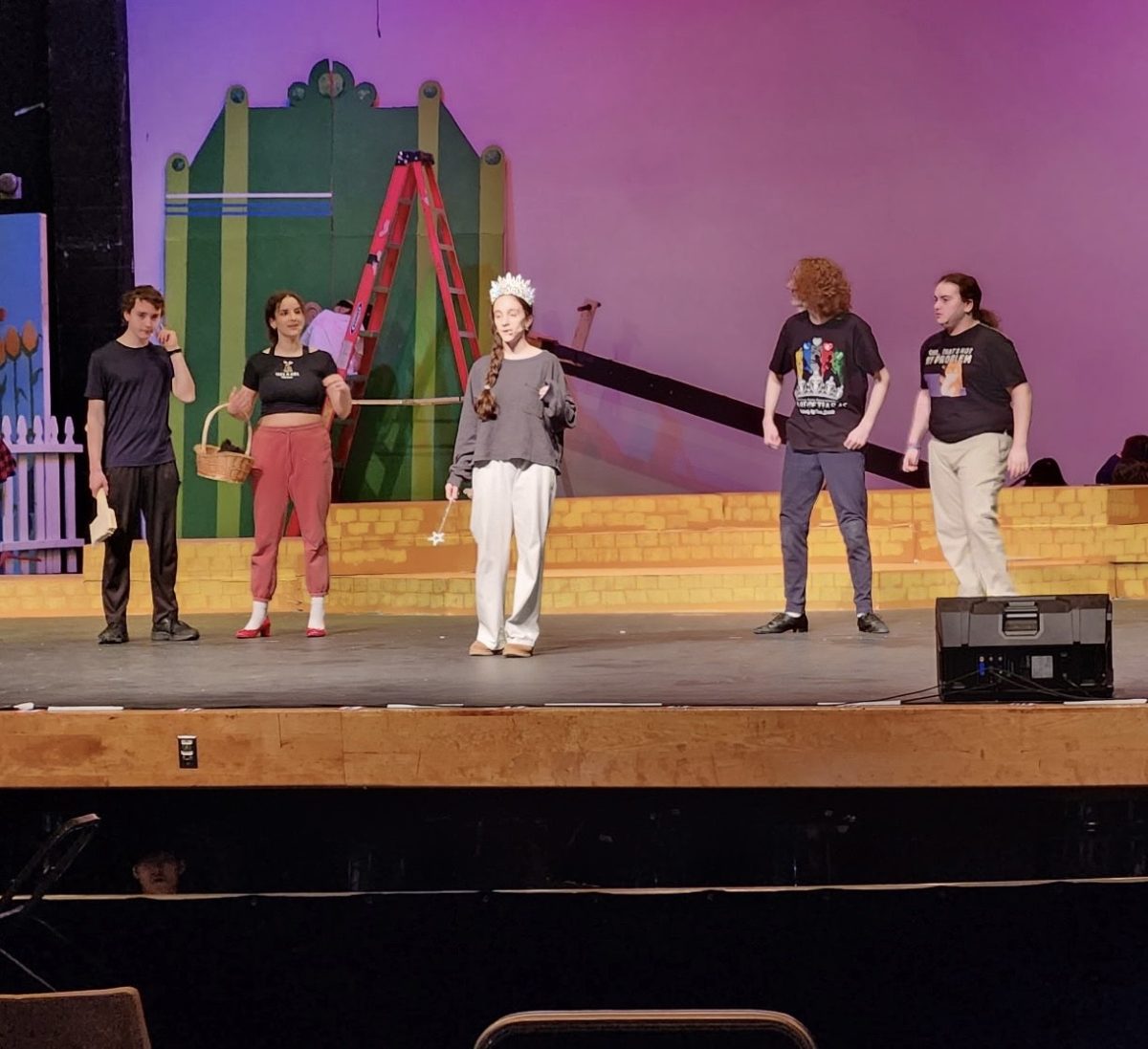While Spamalot audiences stared in awe at the vivacity that happens on stage and pondered the vast amount of time the cast has been preparing for this moment, another unseen group has also labored tirelessly to perfect every technical aspect of the play.
The non-acting parts of the play are managed by stage crew. They serve behind the scenes to make sure the actors can be seen and heard and have costumes and props to use. “It is students creating sets, sound and the non-acting parts in production,” stage crew sponsor and theater teacher Jessica Speck said.
Stage crew meets Monday through Thursday every week, where members gather in the auditorium from 2:45 p.m. to 4:30 p.m. “There are around 40 students enrolled,” Speck said.
Students choose from a variety of specialties while in stage crew, including sound, props, costumes, building, lights and marketing. Junior and former member Hannah Mikowski, who specialized in sound, enjoyed her time in stage crew. Her position was to verify that the audience could hear sound effects, music and the actors. “We set the sound system, work the soundboard and the mics,” Mikowski said.
When students join stage crew, they are trained in basic safety and tools. This includes proper use of drills, hammers, tape measures, staplers and standard safety training while working in the auditorium. Specialties may require extra training. Sound, building and lights, for example, need extra training because students work in what can be a dangerous environment.
Specialties offer a diverse option of choices for students. The costumes department sews, puts together costumes and applies makeup. Props create and craft the portable objects that actors use on stage. Marketing advertises the play with posters and social media. Building uses carpeting techniques to build sets. Lighting designs and works the lights, while also operating the spotlight. Painting paints the sets, and finally, sound works so that the audience can hear the audible aspects of the play.
Sophomore Natalie Eisen enjoyed being in stage crew. She says she found joy when she had the chance to learn new abilities. Eisen painted the sets and learned to perform different jobs in the specialty. “I mixed paint colors together. I learned new painting techniques and I also cleaned the brushes,” Eisen said.
During a performance, stage crew can become stressful. This is the moment they have all been working toward. They attempt to keep up with technical cues, make certain the sound and mics work perfectly and change the scenes continually. “It can be stressful during production week,” Mikowski said.
Once production has come to a finale, stage crew stows away the props and costumes, and takes down lighting designs to get ready for the next production.


